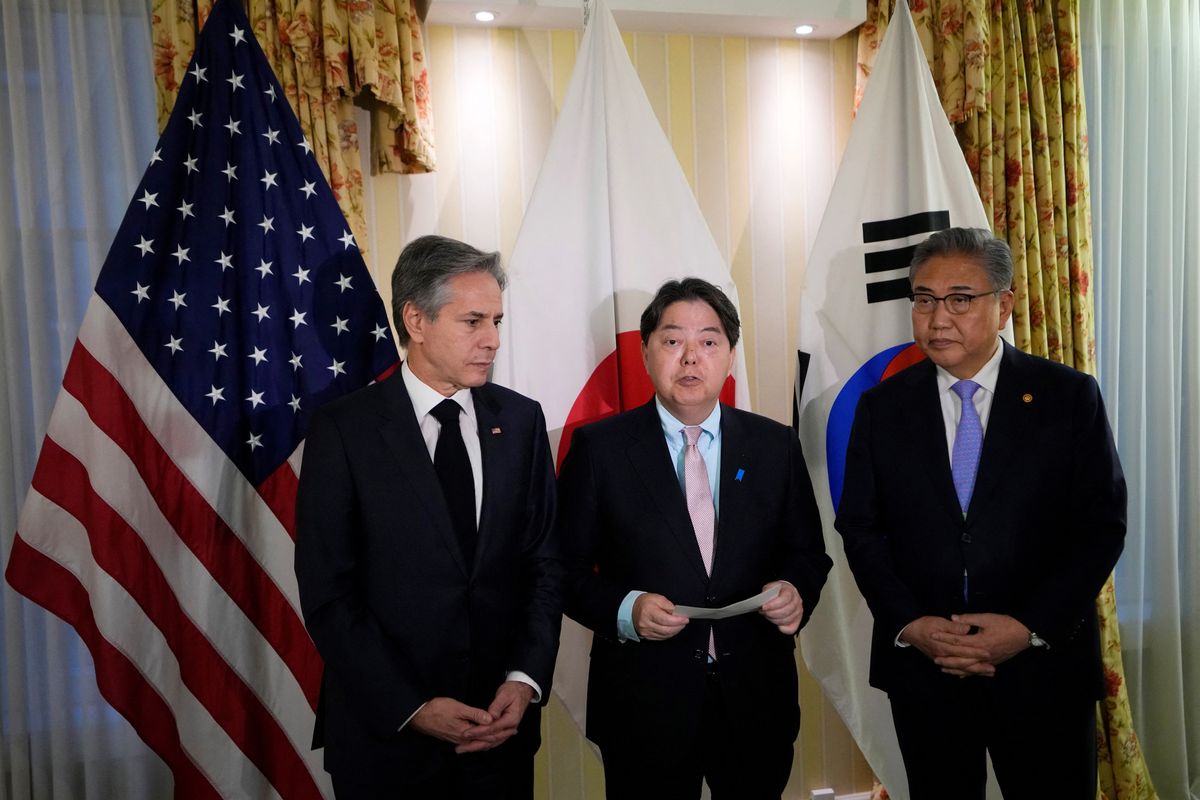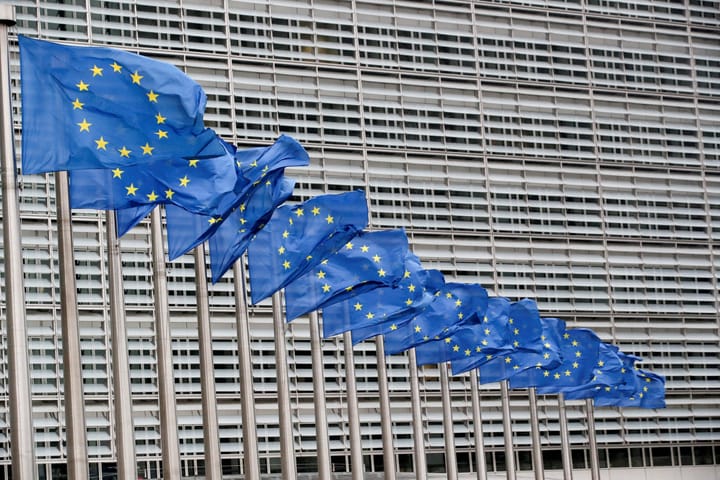Some highlights from this year’s Munich Security Conference
The Munich Security Conference, aka "Davos of Defense," takes place every year.

A few minutes every morning is all you need.
Stay up to date on the world's Headlines and Human Stories. It's fun, it's factual, it's fluff-free.
The backstory: The Munich Security Conference, aka "Davos of Defense," takes place every year. From every (habited) continent come dozens of world leaders, generals, security experts and officials and diplomats to Germany for the three-day conference. Since the war in Ukraine started last year, the conflict has been expected to set the stage for this year's event. For the first time since the 90s, Russia didn't get an invite to the conference. The Iranian government also wasn't offered seats. Instead, opposition and exiled figures from those countries were invited.
The development: There were a few highlights at this year's Munich Security Conference. Ukrainian President Volodymyr Zelenskiy opened the conference, warning against war "fatigue" and also urging speed in Ukraine's fight against Russia's latest offensive. US Vice President Kamala Harris also spoke, accusing Russia of crimes against humanity in Ukraine. The US government is formally accusing Russia of committing war crimes. Chinese diplomat Wang Yi called for peace talks between Russia and Ukraine.
Additionally, an agreement was made for Europe to provide Ukraine with more weapons. German Defense Minister Boris Pistorius pushed for higher military spending for Europe and NATO. Outside of the conference itself, demonstrators gathered in anti-war protests. There were over a dozen demonstrations at Munich's Königsplatz, with tens of thousands of people from anti-NATO protestors to pacifists and pro-Kurdish activists staging their own displays. But, a pro-Ukraine rally was also held, calling for more military aid and support in Ukraine.
Key comments:
"It is not the time for dialogue because we have a Russia which has chosen war, which has chosen to intensify the war, and which has chosen to go as far as committing war crimes and attacking civilian infrastructure," said French president Emmanuel Macron.
"We reserve crimes against humanity determinations for the most egregious crimes," US Secretary of State, Antony Blinken, said in a statement released at the conference.
"The biggest risk of all is if Putin wins. If Putin wins in Ukraine, the message to him and other authoritarian leaders will be that they can use force to get what they want," said NATO Secretary General Jens Stoltenberg.




Comments ()